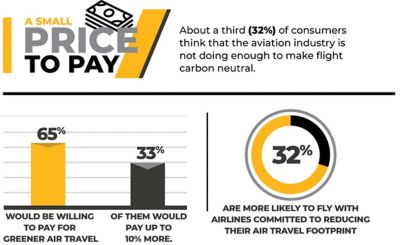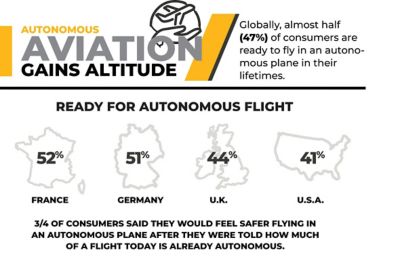-
-
Access Free Student Software
Ansys empowers the next generation of engineers
Students get free access to world-class simulation software.
-
Connect with Ansys Now!
Design your future
Connect with Ansys to explore how simulation can power your next breakthrough.
Countries & Regions
Free Trials
Products & Services
Learn
About
Back
Products & Services
Back
Learn
Ansys empowers the next generation of engineers
Students get free access to world-class simulation software.
Back
About
Design your future
Connect with Ansys to explore how simulation can power your next breakthrough.
Free Trials
ANSYS BLOG
June 20, 2023
Education is Key to Aviation Innovation
The user experience is an important engineering consideration. In commercial aviation, engineers rightly focus on technologies to advance the safety and performance of passenger aircraft, but consumer preferences can determine which innovations succeed in the market. Is it worth the effort of developing autonomous planes if people are too afraid to ride them? How much do passengers care about their carbon footprint when they book a flight, and are they willing to pay more for a greener flight if the technology is available?
To help answer these questions. Ansys commissioned a survey of more than 6,000 people in France, Germany, the United Kingdom, and the United States. The results reveal their opinions and knowledge of the engineering efforts currently being made in the field of aviation, including some surprises when it comes to today’s accepted procedures and what technologies could shape the future of aviation.

Capturing Carbon Footprint Concerns
When asked if they think about the emissions related to their business or personal air travel, nearly 63% said they are very or somewhat concerned, but almost half don’t know how to obtain carbon footprint info for their flights. Reinforcing the need for the industry to share its sustainability story: About a third of respondents say airlines are not doing enough to make flight carbon neutral, and 28% have no idea what airlines are doing to make flight carbon neutral.
What does that mean for commercial flight bookings? It's a mixed bag, with half of those surveyed responding that one way they would lessen their carbon footprint is by reducing their air travel. On the plus side, 65% said they would be willing to pay for greener air travel.
When broken down by country, respondents in France were the most concerned about carbon emissions in aircraft. Seventy percent of French respondents said they were very or somewhat concerned about carbon emissions from the aircraft, vs. 65% from Germany, 63% from U.K., and 53% from the U.S.
U.S. respondents were the least likely to check the carbon emissions of flights before making a booking. The U.K. and U.S. markets were the most likely to not know what the aviation industry is doing to make flights carbon neutral. About a third (34%) of respondents from the U.K. and 39% of those from the U.S. said this, compared to 22% of those from Germany and 16% of those from France.
The majority of the public's sustainability concerns may bode well for new and emerging aircraft power sources — if they knew what those alternative power sources were. On average, 36% of respondents had never heard of sustainable aviation fuels (36%), electric-powered aircraft (35%), hybrid-electric aircraft (37%), or hydrogen-powered aircraft (37%).

Proving Technology
Half of the respondents said they would not fly on aircraft with new and emerging power sources because the technology hasn’t been proven yet. However, their level of trust was increased with the knowledge that "simulation enables engineers to see how their digital designs will — or won’t — behave in millions of real-world scenarios, while reducing or even eliminating the need for costly physical testing."
Confidence also increases after being told how alternative fuel sources had been extensively simulated and tested using methods applied to aircraft safety for the past half century. Armed with that information, 69% said they would be more likely to trust these new technologies.
That same trend holds true when asked about autonomous flight. The more people know and understand, the more likely they are to be comfortable with technology. At first, the prospect of autonomous flight found muted support from survey respondents, even when they were given this information: “For the first time, artificial intelligence (AI) has just flown a plane for 17 hours without human assistance. Would you consider flying in an autonomous (self-piloting) aircraft?”
About a third of respondents said they would be willing to take an autonomous flight in the next five years, with an almost equal amount saying they would never do so.
Respondents from France (52%) and Germany (51%) were the most likely to say that, within 5 years or later, they would consider flying in a self-piloting plane, vs. 44% of those from the U.K. and 41% of those from the U.S. saying the same.
Informing those surveyed about the prevalence of autonomous assistance on current flights made a difference. Survey takers were told: “On your last flight, it is likely that only the first 10 minutes and final 10 minutes were controlled by a pilot. The rest was autonomous. Does this change your perception of how safe autonomous flying is?”
In total, 74% of respondents said this information changed their perception of the safety of autonomous flight. Forty percent of them said they were "shocked it’s not common knowledge that the vast majority of my last flight was likely autonomous.” The two most likely markets to say this were respondents from the U.K. (45%) and France (44%).

Innovate and Educate
The aviation survey results highlight the role that education plays in advancing innovation across the aerospace industries. When it comes to commercial aviation, consumers are often suspicious of what they don't understand. Simulation can not only help the aviation industry gain insights on cutting-edge solutions as engineers develop the future of flight, but it can also be used to help consumers gain confidence in what's ahead.